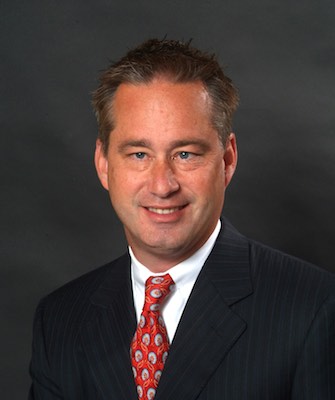On the Record with Rudy Telscher

Rudy Telscher, a partner with Harness Dickey, represented Octane Fitness in one of the most important patent cases decided by the United States Supreme Court over the last decade. The Supreme Court’s decision in Octane Fitness v. Icon Health & Fitness granted district court judges broad discretion to award attorneys’ fees as they see fit in patent litigation. This decision, and a decision in a companion case (i.e., Highmark, Inc. v. Allcare Health Management System, Inc.) derailed patent reform during the 113th Congress.
Fee-shifting provisions are again front and center as Congress continues to consider patent reform. Recently, the House of Representatives announced that they would table the Innovation Act for the rest of the summer, with September targeted as the earliest the House may consider the bill.
Still, with fee shifting playing such a prominent role in patent reform in both the House and Senate, I thought it would be interesting to speak with Telscher on the record, which took place on June 29, 2015.
What follows are excerpts from my discussion with Telscher. For the entire transcript, please see Behind the Scenes on Octane Fitness.
Telscher on whether Congress should be legislatively enacting fee-shifting provisions:
I think the notion that Congress should be passing fee legislation, it’s not necessary and I think it’s premature at best. You got an Octane decision out there, which is having an impact. The district court judges now have discretion to look at cases and spot ones that are just too weak and force the losing party to pay fees. And that’s working. So I think legislation, in view of that Octane decision, there’s no need for that at this point. Now, there are other provisions to some of this legislation that might be a good idea. Again I’m with you; it needs to be thought through carefully because sometimes you fix one problem and you create three other more significant problems. But, you know, venue for example. The notion that we have roughly 30 to 40% of our patent cases in this little known area of Eastern District of Texas, you know, is obviously sends a strong signal that people are just forum shopping because they know they’re gonna get more favorable treatment there than elsewhere and I know that usually the court systems are not enjoying or not condoning a system where people are gaming it. So I think you can get into certain areas where legislative efforts may be beneficial. I don’t think fee shifting is one of them.
Regarding the Supreme Court giving district courts broad discretion on the issue of awarding fees:
QUINN: It seems like the Supreme Court is asking the judges to use the inherent powers of the court and exercise the purest function of judging, which I think is to give them just broader discretion and stay out of their way.
TELSCHER: I think that’s right. I think that’s what the Supreme Court believes and that’s why there’s a tension between the Supreme Court and Federal Circuit because the Supreme Court trusts district court judges. The Supreme Court gives broader, more vague standards and just trusts the district courts can apply those standards, look at the facts and do justice. And I think quite frankly the district court judges get that correct.
A portion of our discussion on the future of the patent system:
QUINN: Looking into your crystal ball, if you are trying to figure out what the future holds, what would you say? Are you bullish on the patent system? Do you think the patent system is going into a bear market, so to speak? Where do you think we’re headed?
TELSCHER: Well, I think that I’m not bearish to the point of thinking that everything’s going down the tubes. Or that we’re going back to the state of affairs that existed prior to 1982. 1982 is when the Federal Circuit was created. And the Federal Circuit has been a strong proponent of a strong patent system and I don’t see that changing. I think there are pressures that are hurting the patent system. I share your view that the equilibrium may be shifting and the pendulum may be going too far in the negative direction. But I think there’s a lot of lobbying going on right now before Congress that’s telling them ‘be careful what you’re messing with here.’ So I’m cautiously optimistic that this won’t get carried away too far.




You share in the PLI Practice Center community, so we just ask that you keep things civil. Leave out the personal attacks. Do not use profanity, ethnic or racial slurs, or take shots at anyone's sexual orientation or religion. If you can't be nice, we reserve the right to remove your material and ban users who violate our Terms of Service.